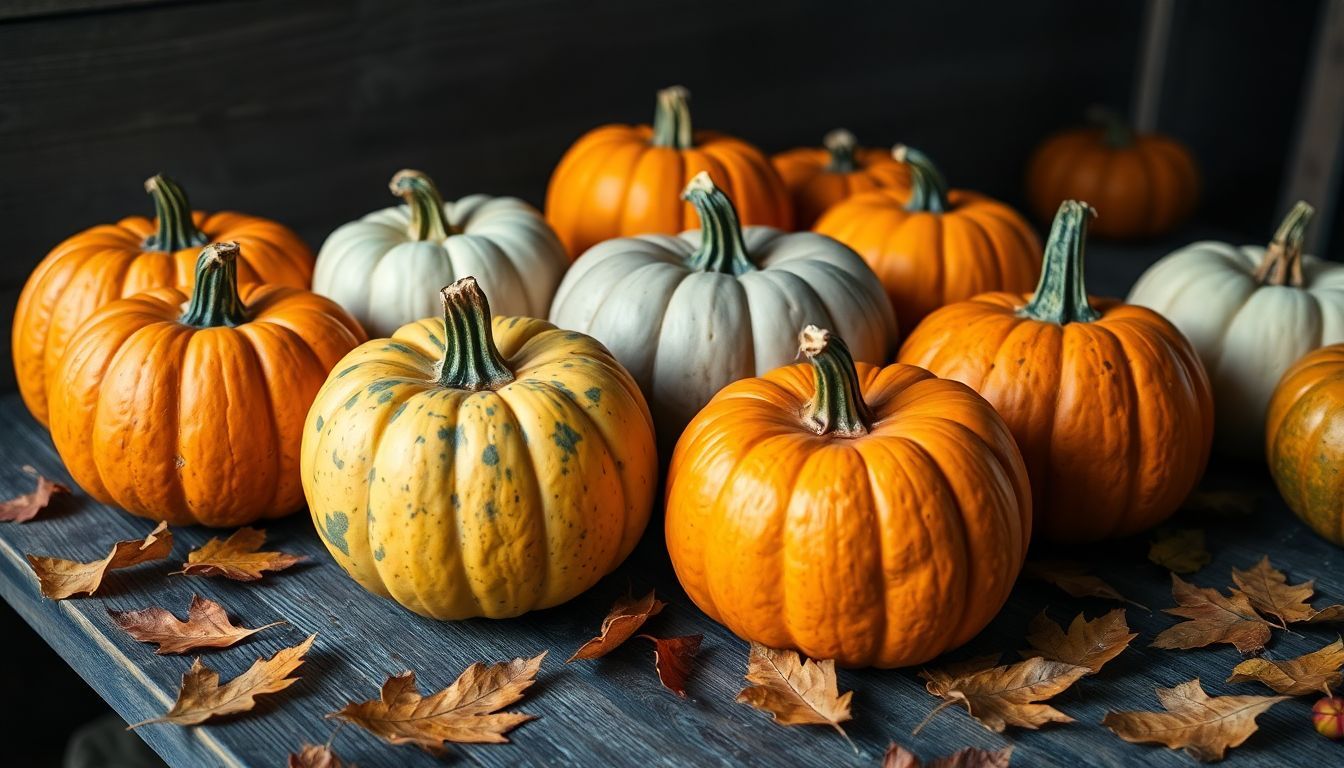Pumpkins are often seen as festive decorations, but they are packed with nutrients too. They provide over 245% of your daily vitamin A needs and are rich in other vitamins like C and E.
Thank you for reading this post, don't forget to subscribe!This blog explains the many health benefits of pumpkin and how to enjoy it in your diet. Keep reading—you’ll be surprised by what this superfood can do!
Key Takeaways
- Pumpkins provide over 245% of your daily Vitamin A needs, boosting vision, skin health, and immunity.
- They are low in calories (49 per cup), high in fiber (3 grams), and packed with nutrients like potassium, beta-carotene, and vitamins C and E.
- Antioxidants in pumpkins help protect against eye issues like macular degeneration and cataracts.
- Pumpkin aids digestion, supports heart health by regulating blood pressure, and helps lower cholesterol levels.
- You can enjoy pumpkin roasted, pureed in soups or smoothies, baked into muffins or pies, or added to oatmeal for a healthy twist.
Nutritional Profile of Pumpkin
Pumpkins aren’t just for decoration—they’re packed with nutrients your body will thank you for. From vitamins to minerals, here’s a quick breakdown of pumpkin’s nutritional value per one cup of cooked pumpkin:
| Nutrient | Amount Per Cup (Cooked) | Health Benefits |
|---|---|---|
| Calories | 49 | Low-calorie option for weight management. |
| Vitamin A | 245% of Daily Value | Supports vision, immunity, and skin health. |
| Protein | 2 grams | Essential for muscle repair and growth. |
| Fiber | 3 grams | Aids digestion and promotes fullness. |
| Beta-Carotene | Rich Source | Converted into vitamin A, great for eyesight. |
| Vitamin C | Good Amount | Boosts the immune system and skin health. |
| Vitamin E | Present | Acts as an antioxidant, protecting cells. |
| Potassium | High | Maintains healthy blood pressure and heart function. |
| Riboflavin | Notable Amount | Helps with energy production in the body. |
| Copper | Significant Amount | Supports immune health and iron absorption. |
| Manganese | Significant Amount | Promotes bone health and metabolism. |
Rich in multiple vitamins and minerals, pumpkin is a smart choice for many diets. Its nutrient density paired with low calories makes it a great addition for health-conscious eaters.

Key Health Benefits of Pumpkin
Pumpkins are packed with vitamin A, which supports eye health. Beta-carotene, a plant pigment in pumpkins, boosts vision and helps prevent night blindness. Antioxidants like lutein and zeaxanthin protect against age-related macular degeneration (AMD) and cataracts.
These nutrients lower the risk of vision loss as you age.
High levels of vitamins A and C improve immune function by strengthening white blood cells. Potassium in pumpkins helps regulate blood pressure, reducing the chance of stroke or heart disease.
Fiber lowers cholesterol levels while aiding digestion for regular bowel movements. Their low calories make them perfect for weight management, keeping you full longer without spiking blood sugar.
Use pumpkin puree or roasted chunks to boost your meals—it’s healthy and tasty!
How to Incorporate Pumpkin Into Your Diet
Pumpkin is more than just a fall decoration. It’s a nutrient-dense food that fits into many meals.
- Roast pumpkin with olive oil, garlic, salt, and spices. Enjoy it as a side dish or snack.
- Make pumpkin soup by blending pumpkin puree with broth, cream, onions, and garlic. It’s warm and hearty.
- Add canned pumpkin to smoothies for a creamy twist. Blend it with yogurt, banana, almond milk, and cinnamon.
- Mix canned pumpkin into oatmeal for extra flavor and fiber. Sweeten it with maple syrup or sprinkle cinnamon on top.
- Bake pumpkin muffins or desserts like pumpkin pie using fresh or canned puree for something sweet yet healthy.
- Scatter roasted pumpkin seeds on salads or eat them as snacks for their crunch and health benefits.
- Stir cooked cubes of pumpkin into pasta dishes alongside Parmesan cheese.
- Replace refined carbohydrates in recipes by using canned or pureed pumpkin as an alternative ingredient.
- Whip up a quick snack by making savory dips blended with roasted pumpkin and spices.
- Use mashed pumpkins in pancake batter to sneak in vitamins A, C, E.
